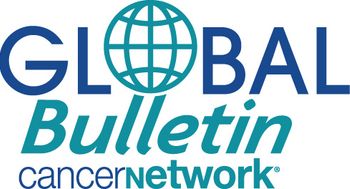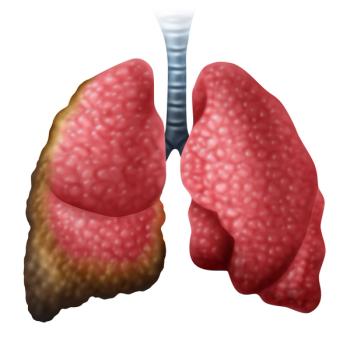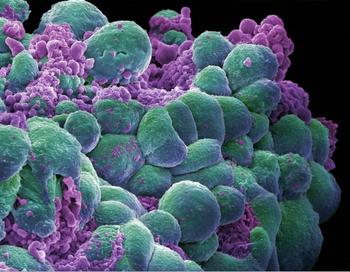
The marketing authorization was based on results from the DESTINY-Breast09 trial assessing T-DXd/pertuzumab in first-line HER2+ metastatic breast cancer.

Your AI-Trained Oncology Knowledge Connection!


The marketing authorization was based on results from the DESTINY-Breast09 trial assessing T-DXd/pertuzumab in first-line HER2+ metastatic breast cancer.

Data from the QUILT-3.032 trial supported the Saudi approval of nogapendekin alfa plus BCG in adults with BCG-unresponsive NMIBC with carcinoma in situ.

The Taiwan FDA has approved nivolumab/ipilimumab for patients with MSI-H/dMMR metastatic colorectal cancer based on data from CheckMate 8HW.

Data from the QUILT-3.055 and QUILT-2.023 studies support the accelerated approval of the nogapendekin alfa inbakicept regimens in Saudi Arabia.

Data from the phase 3 MANUEVER trial support the approval of pimicotinib for patients in China with symptomatic tenosynovial giant cell tumors.

The tafasitamab-based regimen was previously approved by the FDA in June 2025 for patients with relapsed/refractory follicular lymphoma.

Results from the TRANSCEND NHL 001 trial showed that liso-cel achieved an ORR of 82.7% in patients with previously treated mantle cell lymphoma.

Pharmacokinetic data from the phase 1/2 GO29781 study support the European approval of subcutaneous mosunetuzumab in this follicular lymphoma population.

The regulatory decision regarding the subcutaneous pembrolizumab formulation is based on results from the phase 3 3475A-D77 trial.

The phase 3 KEYNOTE-689 trial showed a median EFS of 59.7 months with the pembrolizumab regimen in locally advanced head and neck squamous cell carcinoma.

Data from the phase 3 DESTINY-Breast09 trial presented at the 2025 ASCO Annual Meeting formed the basis of the supplemental NDA.

The agency has recommended approval for subcutaneous pembrolizumab in all previous solid tumor indications, and for pembrolizumab in recurrent HNSCC.

The decision from the Ministry of Health, Labour and Welfare was supported by phase 3 LUNAR trial results showing an OS benefit with Optune Lua in NSCLC.

Patients with recurrent or metastatic cervical cancer in Hong Kong are now eligible to receive treatment with tisotumab vedotin.

Results from the phase 3 KEYNOTE-689 trial supported the agency’s approval of the pembrolizumab/surgery regimen in PD-L1–positive head and neck cancer.

Patients with FRα+, platinum-resistant high-grade serous epithelial ovarian, fallopian tube, or primary peritoneal cancer may now be eligible for mirvetuximab soravtansine in the UK.

Data from the phase 3 INAVO120 trial support the approval of inavolisib-based treatment for patients with PIK3CA+, ER+/HER2– disease in the EU.

Results from the phase 3 TRIANGLE trial showed prolonged failure-free survival and overall survival with ibrutinib and CIT vs CIT plus ASCT alone.

Results from the AQUILA trial led to the approval of subcutaneous daratumumab for patients with smoldering multiple myeloma at risk of developing the disease.

Data from the phase 3 KEYNOTE-A18 trial support the approval of the pembrolizumab-based regimen for those with stage III to IVA cervical cancer in Canada.

EU approval of the agent is based on results from the phase 2b ReNeu trial, which met its primary end point of confirmed objective response rate in NF1-PN.

Data from the phase 3 BEACON CRC trial support the approval of encorafenib plus cetuximab for this colorectal cancer population in China.

Data from the RATIONALE-309 trial support the European Commission’s approval of frontline tislelizumab plus chemotherapy in this patient population.

Data from the HERIZON-BTC-01 trial evaluating zanidatamab in previously treated, unresectable HER2-positive biliary tract cancer support the decision.

Data from the phase 3 ASTRUM-005 trial support the MHRA’s approval of serplulimab for patients with extensive-stage small cell lung cancer.

Data from the phase 3 CABINET trial support the CHMP’s positive opinion of cabozantinib in well-differentiated extrapancreatic or pancreatic NETs.

Results from the phase 3 DeFi trial showed superior progression-free survival with nirogacestat vs placebo in patients with progressing desmoid tumors.

In the phase 3 MANEUVER trial, pimicotinib improved the objective response rate vs placebo in patients with tenosynovial giant cell tumor.

In patients with advanced Hodgkin lymphoma, BrECADD was noninferior to eBEACOPP chemotherapy and demonstrated improved progression-free survival.

The European Commission is expected to approve the belantamab mafodotin combinations for this multiple myeloma population in the third quarter of 2025.